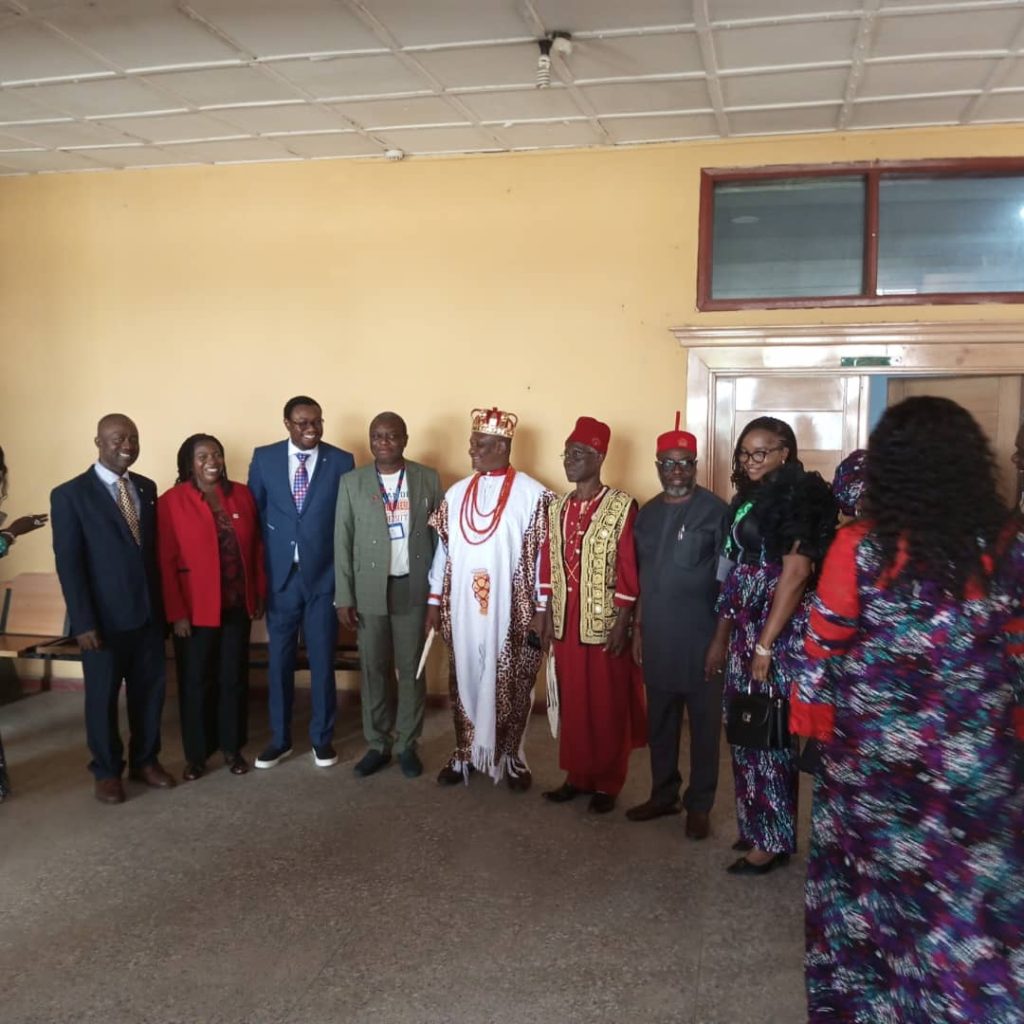Lawrence Nwimo, Awka
Some stakeholders and leaders have stressed the need for African governments to build a more creative and digital-driven economy for the economic prosperity of African nations.
The call was made at the just concluded 2023 Hybrid International Conference organised by the Faculty of Management Sciences, Nnamdi Azikiwe University, Awka in Anambra State.
According to scholars who formed the bulk of the stakeholders, a viable digital economy will turn Africa into a technology-driven knowledge-based economy capable of facilitating the growth and development of the continent.
Vice Chancellor of Dennis Osadebay University, Asaba, Professor Ben Oghojafor, while delivering a Lead Paper on “Disruption and Management Sciences in Africa: Issues and Strategic Choices,” highlighted that economies in African nations were being disrupted by technological advancements, economic shifts, political instability, and environmental challenges.
He said understanding and effectively managing the disruptions is crucial for economic growth, sustainable development, and progress of the nation.
On turning such disruptions for the good of African nations, Prof Oghojafor said strategic choices must be made by African leaders in terms of resource allocation, organisational structure, market positioning, exploring innovations, and partnerships.
He said “Collaborative efforts between governments, business, academia, and civil society are often necessary to address disruptions effectively and capitalise on emerging opportunities.
“Today, Africa craves a niche for resilience in the face of ‘disruptions and management sciences.’ There are opportunities to foster innovation and creativity, build strategic partnerships, enhance organisational agility, invest in human capital development, and leverage indigenous knowledge and expertise.”
He said strategic choices and their implementation may vary across African countries owing to variations in local contexts, resource availability, and national priorities but stressed that addressing disruptions and leveraging management sciences effectively can contribute to Africa’s development and create a more prosperous future for the continent.
He also said that strategic choices could be championed through promoting innovation and entrepreneurship, strengthening infrastructure, capacity building, fostering regional integration, and embracing sustainable practices such as renewable energy adoption and accelerating circular economy.
Also speaking, Co-founder of Convexity Technologies Ltd, Adedeji Owonibi, said disruptions in the field of management sciences have been driven by technological advancements, changing consumer preferences, and global economic shifts.
He identified social and mass media, entrepreneurial studies, digital transformations, and accounting and finance as key areas affected by disruptions.
He emphasised the need for governments to strengthen education and training programmes in disaster management, problem response, and digital literacy at all levels of education. He also called for the promotion of continuous learning and professional development for government officials, healthcare workers, and emergency responders to address disruptions in Africa.
He further emphasised that promoting innovation, leveraging technology, and embracing sustainability would be crucial to mitigating social and technological disruptions in Africa.
The Vice Chancellor of Nnamdi Azikiwe University Awka, Professor Charles Esimone, while declaring the event open, said the theme of the conference was apt and essential to the socio-economic realities of the present day not just for Africa but for the world at large.
Prof. Esimone revealed that the fourth industrial revolution age is characterised by positive changes, and rapid changes in the technology, service, and policy decisions of government.
Earlier in a welcome address, the Dean Faculty of Management Science, Professor Pius Okoye, said disruptive innovations have affected all aspects of human endeavours and present opportunities for resourceful management of organisational resources.
He said the disruptions will tend to reduce the relevance of conservatives and lazy managers, noting that it is a duty to humanity to point towards maximising resources for human development.
He said the conference critically analysed all the ramifications of disruptions in Management Sciences in Africa while emphasising the salient issues at stake and proferring strategic choices to adeptly navigate the consequential challenges of such disruptions.
Other seasoned academics, distinguished professionals, and captains of industry also presented papers on different sub-themes of the international conference but the icing on the cake was the homecoming /reunion of the alumni of the Faculty for the first time since their mass return in 2021.

